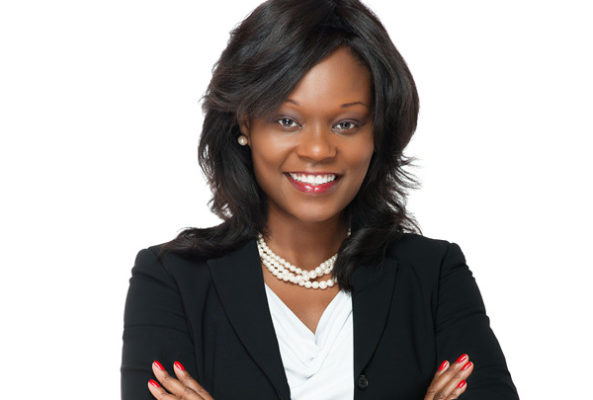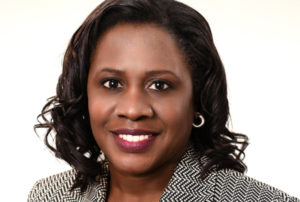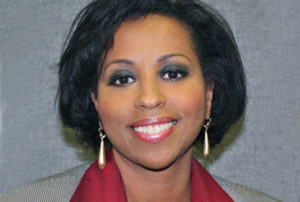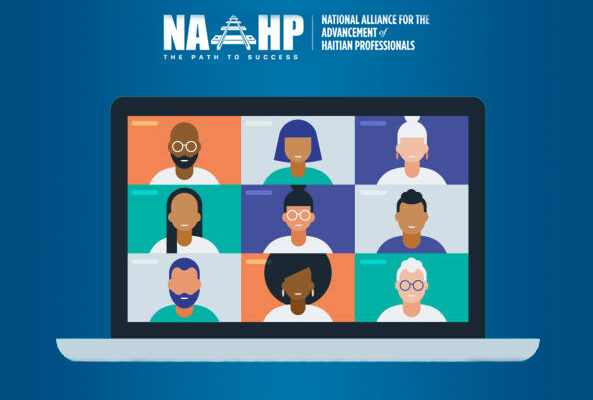
Leadership Spotlight on Assemblymember Rodneyse Biochotte
Each week the NAAHP highlights individuals who are making a difference in their communities. Rodneyse Biochotte is an elected Assemblymember and State Committee Woman/District Leader representing New York State’s 42nd Assembly District. She is the first Haitian-American woman elected in New York City, and the first engineer elected to the New York State Legislature.
Currently, Rodneyse serves as Chair of the Subcommittee on Oversight of Minority and Women-Owned Business Enterprises (MWBEs) and has been appointed by Governor Cuomo to sit on his Domestic Violence Advisory Council. You can read her full profile at naahpconference.org and learn more at rodneysebichotte.com.
Genevieve will be attending the 6th Annual NAAHP Conference. She is a panelist for the session: Elected Officials of Haitian Descent. A discussion of Haitian-American elected officials who have constituted themselves into the National Haitian-American Elected Officials Network (NHAEON). These elected officials will discuss with the conferees the value of political empowerment for Haitian-Americans in general and the absolute necessity for young Haitian-American professionals to get involved in electoral politics at all levels. As well, these officials will share their initiatives to address various hot-button issues, such as TPS and other immigration challenges, facing Haitians.
10 Questions for Assemblymember Rodneyse Biochotte
Dominique Elkind, NAAHP: Tell us a bit about your personal background.
Rodneyse Biochotte: I, like many other first-generation immigrants, came from extremely humble beginnings. I was born and raised in Brooklyn where my mother, the matriarch of my family filed for every single member of her family to come to the US from Haiti. She worked in the hotel industry, while my father was the lead saxophonist in the legendary Haitian jazz band “Jazz des Jeunes.”
I am a product of the New York City Public School System where I attended PS 198, Andries Hudde Middle School, and the specialized high school, LaGuardia High School of Music and Arts & Performing Arts. After high school, I went on to earn and hold several degrees including an MBA from Northwestern University, Kellogg School of Management, an MS in Electrical Engineering from Illinois Institute of Technology, a BS in Electrical Engineering from SUNY Buffalo, a BS in Mathematics in Secondary Education and a Bachelor of Technology in Electrical Engineering both from Buffalo State College. In my career journey, I served as a math teacher, an engineer, an investment banker and now a legislator.
I have traveled all over the world including seven countries in the continent of Africa, several countries in Asia, Europe, Latin America, and the Middle East including Israel. This experience has been invaluable in helping me to understand and work with people across many different races and cultures.
I am currently the Assemblymember and State Committee Woman / District Leader for New York State’s 42nd Assembly District. I have been appointed Chair of the Oversight of Minority and Women-Owned Business Enterprises (MWBEs) Subcommittee. I also serve on the following committees: Housing, Government Operations, Economic Development, Small Businesses, Banks, and Social Services. Since I first entered office in 2015, I have introduced over 60 pieces of legislation, of which four became law. In addition, I have co-sponsored 200 pieces of legislation.
NAAHP: Did you always know that you wanted to work in politics?
RB: No, although I was always very civically engaged or volunteering my time in the community, I didn’t really think about running for office. It wasn’t until I worked on the Obama campaign for US Senate in 2004 while I was still in Chicago, and then relocated back to New York and helped Senator Kevin Parker in 2008, that I began advocating about fixing issues in my community that I got the political bug. After the devastating earthquake in Haiti, I decided to run for District Leader making me the first Haitian-American woman elected to office in New York City. All of this, and not one political science class in college.
NAAHP: How did you build your skill of speaking so engagingly in front of others?
RB: Sharing information is what I do and love to do. As a result speaking and engaging with audiences became a skill I learned to own through practice and because I enjoy it, it is more like I am having a conversation.
NAAHP: What do you do to ensure your initiatives become reality?
RB: It is a combination of things: planning, managing, paying attention to detail and accountability. With everything I do, I try to do at a very high level and in order to do that all of these elements need to be included.
NAAHP: What is the biggest challenge of your work?
RB: One of the biggest challenges and frustrations is not being able to pass progressive legislation, due to how the Senate is structured politically. We don’t currently have a true majority as some Democrats caucus with the Republicans.
NAAHP: How do you motivate and inspire others?
RB: I try to lead by example because I don’t want to tell anyone to do something that I am not doing myself.
NAAHP: What’s the most important leadership lesson you’ve learned?
RB: Learning to build other leaders and legacies
NAAHP: How do you stay connected to your community and constituents?
RB: I use all the tools available to me to stay connected to the community and constituents. The tool I use most frequently is an email marketing tool. Twice a year, I also send updates about major pieces of legislation and budget news from the Assembly in the form of a written newsletter. Throughout the year, I send other pieces of mail in regard to major announcements that the Assembly has supported such as education, clean water, and supportive housing for the homeless, etc. As the Chair of the Subcommittee on the Oversight of Minority and Women-Owned Businesses, I send out quarterly newsletters on resources, opportunities, legislation and upcoming events as it relates to MWBEs. Additionally, I utilize social media such as Facebook and Twitter to communicate more in real time. Occasionally, I will also utilize robot calls as a way to quickly disseminate information.
NAAHP: What would you say have been your greatest accomplishments so far?
RB: As a legislator, one of my greatest accomplishments has been getting elected in the first place, but also since I have been elected I am very proud of my record on affordable housing, economic development, education, women’s rights, human rights, and criminal justice reform. My district has a significant number of Haitian residents and I worked very hard with my colleagues on all levels of government — city, state and federal, to establish the Haitian Studies Institute at Brooklyn College. I have also worked to increase civic engagement by making it easier to vote for Haitian members of the community by introducing legislation – one that would require that all voting materials throughout NYS be translated into Haitian Creole, and one that would require Haitian Creole-speaking translators at polling sites where there is a high concentration of Haitian voters. Additionally, during my first term, I went on a hunger strike until a resolution was passed to condemn the human rights violations against Dominicans of Haitian descent. And now, the launch of “Little Haiti BK” in Brooklyn, which is another way that I am working with a broad range of community stakeholders to promote Haitian culture, economic empowerment to grow and sustain local businesses, and the history of Haitians in the neighborhood of Flatbush.
NAAHP: What are the keys to developing the next generation of leaders in your world?
RB: As a former educator, I believe education is key and also I believe that we can all find a way to positively impact a young person’s life whether it’s through mentoring, donating money to an organization that helps young people, opening your doors to youth to intern at you office, playing a role in youth events such as serving as a motivational speaker. Those are all the things that I do, personally. As a legislator, I invest in the futures of young people by include funding in the State budget for programs that will help facilitate the nurturing of young people’s lives, such as the Obama Administration’s My Brother’s Keeper Initiative.

 English
English Français
Français Donate
Donate Partner
Partner Shop
Shop Login
Login










